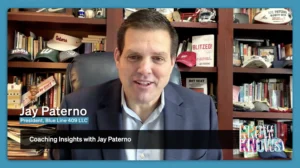Legalized Sports Betting Could Benefit the US Economy
Sports betting has continued to explode in the U.S. despite the reticence of many states to legalize the practice. One of the benefits cited by proponents of legalized sports betting is the tax revenue that states are able to collect. A recent piece in D Magazine analyzed just how much a state like Texas stands to benefit from legalizing sports betting in the upcoming legislative session.
Tyler Kern, Senior Director of Media at MarketScale, shares the numbers and provides his thoughts.
Tyler’s Thoughts on Sports Betting
“So, in a recent episode of the Sports Business Minute for Market Scale, I outlined some of the massive growth that has occurred for the sports betting industry in the United States. It’s really been incredible. Well, one of the things I highlighted in that piece was just discussing the fact that all of this growth has occurred despite the fact that sports betting is not legal across all 50 states just yet.
Only about 30 have some form of legalized sports betting. And one of the states that it is still disallowed in outlawed, I guess you could say outlawed in, is the state of Texas where I live. There’s a fantastic article in D magazine this week by Ben Swanger, who really lays out some of the numbers behind what would happen if Texas were in fact, to legalize it from a taxation perspective, how could the state of Texas actually benefit from taxing sports wagers?
So, it’s a really, really fascinating article, and I wanna dive into some of the numbers. One of the things that he highlights is that nationwide, the sports betting market in 2021 was an estimated figure. 76.75 billion. So that’s pretty large, right? But it hasn’t reached full maturation yet. Estimates, um, put that, uh, that full maturation number at around 167.66 billion, and they think that that market might fully mature by 2029.
And so, we’re still a bit six years away from potentially reaching that point. But what’s really is, is if you divide out the percent of the population that the state of Texas has of the overall population of the United States, you get that Texas is about 9% of the country’s overall population, which would mean that sports betting in the Lone Star state as Ben Swinger says, could potentially be a 14.9 billion market.
Now in the last legislative session that discussed potential legalization of sports betting, uh, representative Dan Huberty proposed a bill that placed the 7% hold in 10% tax on sports wagers, meaning that the take home for the state, once the market is fully mature in 2029 as is estimated, it could approximately reach 106.5 billion, take home for the state in 2029.
That’s a massive number. Right? And so, you begin to consider some of the other ramifications. What would it mean for sports bars, for restaurants if all of a sudden you could go to some of these establishments and bet there? Right? We’ve talked in the past about how Buffalo Wild Wings has talked about putting betting kiosks.
Just at their tables right there. What if you could eventually bet AT&T Stadium during a Dallas Cowboys game? That sort of thing. All of these things are, are potentials down the road that would even raise the ceiling of what this could potentially be and have ramifications across other industries as well, like hospitality, tourism, food and beverage, all of those sorts of things.
And so, you have a lot of potential ramifications. This legalization discussion here in the state of Texas. But that taxation number is really, really interesting. And you wonder how long a state like Texas can continue to maybe thumb its nose at the potential at the potential money they’d be able to bring in by taxing sports wagers.
And so, it’s a fantastic story, a fascinating story to me. To continue to follow. So, if you’re in a state that is already, you know, has already legalized sports betting, it would be really interesting to know just what your state is doing as far as taxation is concerned. If you’re in a state that hasn’t legalized it.
I wonder if I would imagine that that is another one of the arguments that’s coming up, on a pretty regular basis is seeing how states like New York, who’s taxing sports wagers heavily. Seeing the money that they’re able to bring in from this sort of activity and wondering if your state can’t emulate the same thing.
So, something to keep an eye on down the road as we look at the full maturation of the sports betting market here in the United States.”









